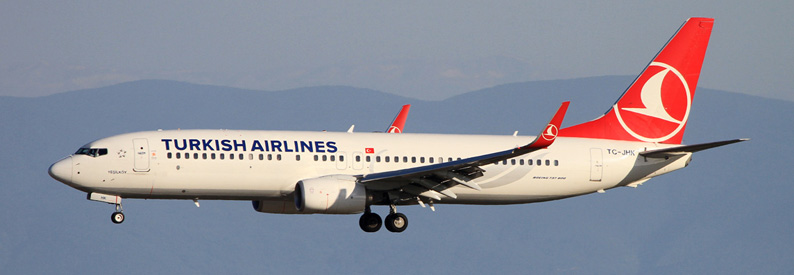Turkish Airlines May Shift Boeing 737 Max Order to Airbus Amid Engine Dispute

Turkish Airlines has warned it could switch a major Boeing 737 Max order to Airbus if ongoing talks with engine supplier CFM International fail to reach acceptable financial terms, according to Chairman Ahmet Bolat.
The statement follows the carrier’s announcement of a tentative agreement with Boeing for 150 737 Max aircraft, revealed during a September 25 meeting between Turkish President Recep Tayyip Erdoğan and then–U.S. President Donald Trump. The deal remains conditional on securing a satisfactory engine agreement with CFM, the sole powerplant provider for the 737 Max family.
“If CFM comes to feasible economical terms, then we are going to sign with Boeing,” Bolat told Reuters in Stockholm. “If CFM continues its stance, we’ll change to Airbus. With Airbus, I have choices,” he said, referring to the A320neo family’s dual-engine options from CFM and Pratt & Whitney.
CFM International—a 50/50 joint venture between GE Aerospace and Safran Aircraft Engines—is the world’s largest jet engine producer by volume. It faces growing scrutiny from airlines frustrated by supply constraints, surging maintenance costs, and slower turnaround times. Boeing declined to comment on the ongoing negotiations, while CFM did not immediately respond.
Fleet Strategy and Expansion Goals
The proposed Boeing deal is part of Turkish Airlines’ long-term fleet renewal and expansion plan aimed at operating roughly 800 aircraft by 2033. The airline already placed a firm order for more than 200 Airbus jets in 2023, including A321neos and A350 widebodies, solidifying its position as one of Airbus’s largest global customers.
Industry analysts expect the Boeing agreement to ultimately proceed, citing both political pressure and limited production slots for Airbus jets. Nonetheless, Bolat’s comments underscore the growing tension between airlines and engine suppliers amid persistent maintenance bottlenecks and component shortages affecting global fleets.
Global Engine Market Strain
Airlines worldwide have voiced frustration over engine reliability issues, particularly with the Pratt & Whitney GTF engines used on Airbus A320neo aircraft. Turkish Airlines has faced several disruptions tied to those engines, grounding aircraft and complicating its capacity plans.
Meanwhile, engine manufacturers argue that high costs reflect their need to recover substantial research and development investments and meet increased maintenance demand. The strained relationship between carriers and suppliers has become one of the industry’s defining challenges post-pandemic.
Ongoing Interest in Boeing 777X
Despite the uncertainty surrounding the 737 Max order, Bolat said Turkish Airlines remains interested in Boeing’s 777X program, the long-delayed successor to the 777. He noted that the airline is “closely monitoring” its progress and discussing potential route applications.
“Once we have the right time, we’re going to order some 777X,” Bolat said, adding that Turkish Airlines was “in no rush” to commit. Boeing’s 777X, featuring folding wingtips and next-generation GE9X engines, is now expected to enter service in 2027—seven years later than originally planned.
As negotiations continue, Turkish Airlines’ balancing act between Boeing, Airbus, and engine suppliers reflects the broader supply chain and pricing tensions shaping the future of commercial aviation.
Related News: https://airguide.info/?s=Turkish Airlines, https://airguide.info/?s=boeing+737
Sources: AirGuide Business airguide.info, bing.com, reuters.com, finance.yahoo.com
